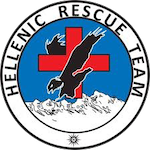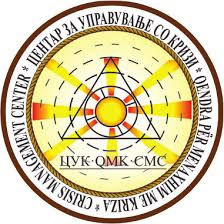Meet our partners
Lead Beneficiary
Total Budget: 420.810,50 €
The International Hellenic University (IHU) is a public institution dedicated to higher education and research. The IHU is among the largest Greek universities, with 7 schools and 34 departments in Central and Eastern Macedonia. The IHU will participate in the HELP project through the department of Mechanical Engineering, which is located at the Serres Campus, formerly known as the Technological Education Institute of Central Macedonia (TEICM).
Apart from leading the project, IHU is responsible for the design, implementation, testing and validation of the 3 prototype containers, namely 2 interconnected “Command, Control, Communications, Computers and Intelligence Centers (C4I)” and 1 on-site medical treatment facility (MED). IHU is also involved in the Communication and Dissemination activities of the project, in the development of a Crisis Management Plan and the Pilot Actions.
The IHU team comprises people with complementary expertise (Mechanical and Civil Engineering, Computer Science) and many years of experience in European and international co-funded research programmes. The multidisciplinary combination is necessary to develop solutions that correspond to the project needs.
Total Budget: 66.900,50 €
Ministry of Interior (Sector Macedonia and Thrace) represents the governmental policy in Northern Greece. Τhe Ministry has an active role in the implementation of the Development Policy Law for the region of Northern Greece, the industrial control of the market, the issuance of licenses of the Listed for protection buildings and preserved traditional areas. Ministry has adopted political extroversion in order to promote the comparative advantages of the wider area, to promote cooperation with European and international organizations, to develop cooperation regions abroad, to create relationships with foreign counterparts in common interest areas and finally to exploit European funds by participating in European and cross border programs (INTERREG). The Ministry has a very well structured Organization with a separate Department managing the European Programs.
The Ministry has already completed successfully 2 Projects in the European Territorial Cooperation Program “Greece – Bulgaria” 2007-2013 with the abbreviation “TRIGGER” as Lead Partner and “Smart Specialization” as Partner and a project for the environmental protection of Thermaikos gulf (eea grands). It is also a financing body in a EU Co-Funded project concerning the preservation of religious heritage (digitalization – Mount Athos). Currently the Ministry is the Lead Partner of the project BENEFIT and a Partner of the HELP and TERRA VINO projects in the Interreg IPA CBC “Greece – Republic of North Macedonia 2014-2020” Programme and a partner of the BORDERLESS CULTURE project in the “Greece-Bulgaria 2014-2020” programme.
Total Budget: 249.266,00 €
The Centre for development of the South-East planning region (CDSEPR), as one of the eight Centres for regional development in the Republic of North Macedonia was founded in December 2008. It is established under the Law for Balanced Regional Development (with status: legal entity) by the ten local government units that are part of the South-East planning region – Bogdanci, Bosilovo, Valandovo, Vasilevo, Gevgeliјa, Doјran, Konche, Novo Selo, Radovish and Strumica.
The main goal and mission of the Centre is to reduce regional disparities in economic development, agricultural development, infrastructure, employment and tourism and protection of the environment that would lead to sustainable and balanced regional development. Part of the activities of the CDSEPR are preparing a draft program for the development of the region, the draft action plan for the implementation of this program, preparing proposals for development of the region, coordination of activities for implementation of the programme, providing professional and technical assistance in the preparation of development programs of the local government units, encourages inter-municipal cooperation, implementation of projects financed by EU funds and other national and international financial resources, etc.
In its activities the Centre has successfully implemented more than 60 projects financed by national, EU and other donors. In order to ensure balanced regional development and increase the quality of life for the citizens in the region, the Centre for development of the SEPR is constantly working on developing new projects and applies to receive funding for their implementation.
Total Budget: 55.726,30 €
Hellenic Rescue Team (HRT) is a volunteer non-profit Search and Rescue organisation, with a human potential of 2.000 volunteers all over Greece and Headquarters in Thessaloniki. HRT participates in SAR (Search and Rescue) missions in cases of urgent needs and massive disasters, either in Greece or abroad. It is acknowledged by Civil Protection Authorities in Greece and EU and a member of the UN-INSARAG (United Nations – International Search and Rescue Advisory Group), and the only Greek member in IMRF (International Maritime Rescue Federation) and IKAR/CISA (Internationale Kommission für Alpines Rettungswesen/Commission Internationale de Sauvatage Alpin).
HRT’s main mission is the search and rescue of people in need and the organisation of Aid Missions in naturals and manmade disasters all over the world, nevertheless a major objective (and vital tool to achieve our mission) is Research and Development in the area of Search and Rescue, crisis and crowd management, telecommunications, ICT for first responders.
Within the Hellenic Rescue Team area, there are seven specialized departments, mainly:
– USAR
– Massive Disasters
– Mountain Rescue
– Water Search and Rescue
– First Aid
– Research, Technology and Telecommunications
– Humanitarian Missions
– Training
Total Budget: 112.850,50 €
The Crisis Management Center (CMC) is an independent state administrative body in the Republic of North Macedonia, having the status and function of a directorate, which legal competences include gathering of information, assessment, situation analysis, objectives and tasks determination, development and implementation of the necessary actions for prevention, early warning and handling crises.
In the execution of the crisis management tasks, CMC performs the activities that refer to providing continuity of the inter-departmental and international cooperation, consultations and coordination. In accordance with its legal competences in a national crisis situation CMC on behalf of the Government performs the coordination and cooperation with international community as a national point of contact 24/7. Within the Crisis Management Center, the State Operation Center functions on a national level 24/7 through the Emergency Call Number 195.
In order to propose decisions and to provide continuous consultations, coordination, timely reaction, efficiency and adequate use of the available resources in case of a crisis situation, as well as to provide timely, qualitative and realistic jeopardy assessment of the security of the Republic from risks and dangers, a Steering Committee and Assessment Group were formed and a Crisis Management Center has been established in the Crisis Management System (CMS). The Steering Committee is a governmental body for coordination and management of the Crisis Management System. The Assessment Group is a governmental body that performs permanent assessment of the risks and dangers to the security of the Republic and proposes measures and activities for their prevention, early warning and handling a crisis situation.





